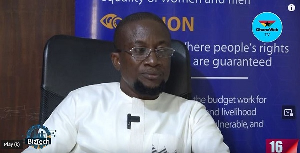Accra, May 29, GNA - A human rights advocate on Women and Housing for Africa on Friday painted a pathetic picture on how women and children suffer forced eviction either by individual landlords, groups or government. "Women spend their time in slums; work, care for children and domestic chores yet are more affected by poor conditions and threats of evictions," Ms Agnes Kabajuni, said at a national training workshop for media practitioners on effective use of the media to promote housing and land rights of women in Ghana. It was organised by Centre on Housing Rights and Eviction (COHRE) in partnership with Women, Media and Change (WOMEC). About 40 participants drawn from the print and electronic media attended the workshop.
Ms Kabajuni expressed concern about how women struggled to own a house or landed property since most inheritances were owned by men who were either their husbands, uncles or brothers and did not have anywhere to go when forcibly evicted. She said women constituted most of slum dwellers but were inadequately housed globally. Ms Kabajuni noted that most African women found on streets in rural areas were widows who had been thrown out of their husband's houses by either a landlord because the woman could not afford the rent or by relatives of the husband who thought it was illegal for women to own houses. She envisaged equal ownership, access and control of housing between men and women across the globe for people to live in peace, security and dignity, adding "Housing is a right for everyone, everywhere". Mrs Sylvia Noagbesenu, COHER Officer indicated that all persons to undertake evictions were to be properly identified and evictions should not be undertaken particularly during bad weather or at night. She said women experienced rape, sexual assault before, during and after forced eviction, battering with poor living conditions. 29 May 10
Regional News of Saturday, 29 May 2010
Source: GNA
















